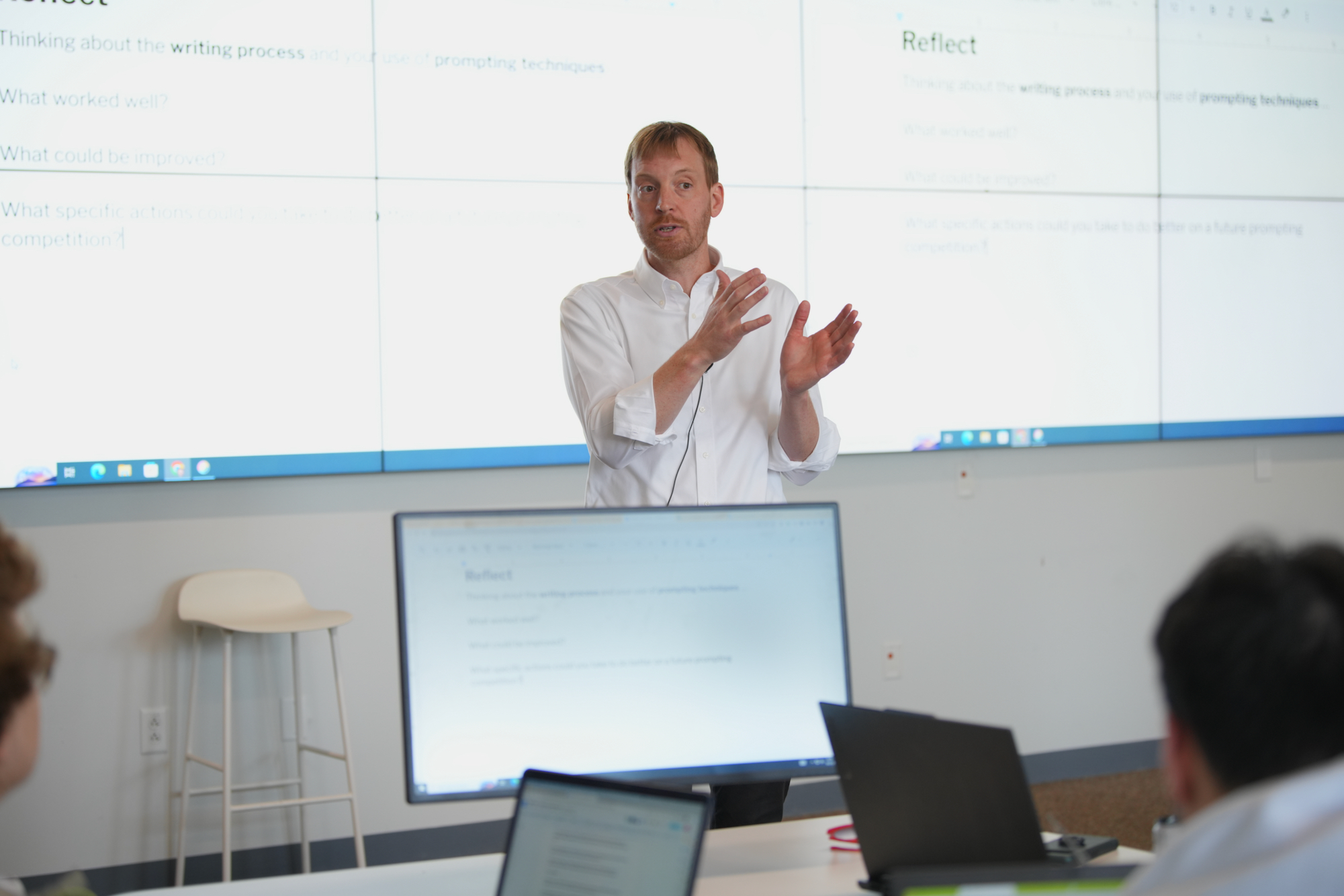- T3: Bron Eager's Newsletter
- Posts
- T3 Feb 12 2024
T3 Feb 12 2024
Hello AI Enthusiasts 👋
Welcome to the latest edition of ‘T3’ – AI Tech, Tools & Trends in Higher Education.
In This Edition
Catch up on the blog – Popular posts from BronEager.com
Featured Book – Atlas of AI
FREE Digital Skills Training for Higher Education Researchers
AI news updates – News articles on AI & Higher Education
B.Store – Check out a collection of great AI books and AI software discount codes
Catch up on recent blog posts
🔗 How PhD Students Can Use ChatGPT to Develop Research Interviewing Skills
Learn to use ChatGPT to practice research interviewing skills. In this blog post, I share tips on how to roleplay with ChatGPT to improve interviewing skills, such as refining questions for more detailed responses and customizing conversations. It includes a downloadable lesson plan:
I’ve been reading Kate Crawford's "Atlas of AI: Power, Politics, and the Planetary Costs of Artificial Intelligence" this week.
It’s a timely and impactful book that delves into the implications of AI, both in the present day and throughout history, situating AI in the physical and social world, exploring its impact on various aspects such as labor, energy consumption, climate change, discrimination, privacy, and government accountability.
FREE Digital Skills Training for Higher Education Researchers + PhD Students
Want to learn about research tools and meet some interesting people? 23 Things International might be ideal!
23 Things is a self-directed online programme. Each week they release two blogs – called Things – covering a topic or piece of software that can enhance how you work.
Topics range from podcasting to understanding open access, crowdsourcing to publication strategy, and career mapping to infographics. There is also the opportunity to build your website and blog, which is an increasingly popular way to present your work and create public interest.
Thanks to Jonathan and Tseen at The Whisper Collective for bringing it to my attention!! I just signed up 🥳
Open to PhD and Masters by research students, their supervisors, and early career researchers from all disciplines.
Registrations open until 23 Feb 2024
🔗 https://otago.au1.qualtrics.com/jfe/form/SV_6fDgNV5adtdlTjo
🔗 Learn more about 23 Things International
Weekly AI News Updates
Catch up on the latest AI news in higher education with this selection of curated articles from around the globe.

A report from Educause has found that the demand for AI in higher education is increasing, while job creation in the field is not keeping pace. The report surveyed over 1,000 professionals in teaching and learning positions, many of whom expressed a desire to leave the field due to heavy workloads and burnout.
Workloads have increased across the board in higher education roles, with 65% of respondents claiming excessive workloads. Roles related to AI saw the highest increase in time demands, but budgeting to expand those roles has not grown significantly.
The report states that digital literacy skills are crucial for future careers in teaching and learning, especially as AI disrupts education. Educause recommends that institutions prioritize employee well-being and morale, offer professional development opportunities, and foster collaboration across campuses.
The report suggests that offering remote or hybrid work options can also help address these concerns.

Temple University has created an artificial intelligence (AI) policy to address the use of AI in the classroom. The university engaged with stakeholders, including AI specialists and faculty members, to determine their concerns and gather insights on how AI can be used for teaching and learning.
The university also focused on the issue of academic integrity, as AI technology can potentially complete assignments for students.
The university provides faculty with training on AI detection tools and guidelines on setting clear expectations for the use of AI in-class work. Temple University has implemented a temporary blanket policy allowing the use of AI in classes, but it is up to individual instructors to decide whether to include AI and to what extent.
See also:

A recent study conducted by researchers at the Indiana University School of Medicine explored the effectiveness of ChatGPT, an AI language model, in creating scientific content. The study prompted ChatGPT to generate scientific articles using three different approaches: articles written solely by human writers, articles created entirely by the AI system, and a hybrid approach involving both.
The study found that using AI significantly reduced the time spent on writing articles, enhancing efficiency in research writing. However, articles composed entirely by ChatGPT had a high percentage of incorrect references, highlighting the risk of misinformation spread through AI-generated content.
When a combination of AI and human involvement was used, instances of plagiarism increased. The study emphasized the importance of maintaining academic integrity and upholding high standards in the era of AI-generated content.
It called for guidelines on the appropriate use of AI in writing articles and stressed the need for human oversight to avoid misinformation and plagiarism.

The emergence of artificial intelligence (AI) in academia has brought both excitement and concern among faculty and students. While some embrace the technology for its potential to enhance teaching and learning, others fear that it may hinder students' desire to learn and their ability to engage with the material.
A survey conducted at Harvard University found that 47% of faculty believe AI will have a negative impact on higher education. However, proponents argue that it is important for educators to adapt to AI and integrate it into their teaching practices.
They emphasize the need for transparency and clear expectations when it comes to using AI in the classroom. Iowa State University has already taken steps to incorporate AI into its curriculum, offering an experimental course on artificial intelligence and writing.
Ultimately, the article suggests that faculty should view AI as a tool to enhance creativity and critical thinking, rather than a replacement for human effort.
A new study provides a randomized controlled trial evaluating how AI assistance impacts human performance on legal analysis tasks. Law students using the GPT-4 system showed moderate improvements in output quality and large increases in speed. The time savings were consistent across skill levels, while quality gains were largest for the lowest-skilled participants. Students reported higher satisfaction when using AI and accurately predicted where it would be most helpful.
B.Store
A curated selection of books that shaped my AI learning journey.
That’s a Wrap!
Thanks for your support.
I appreciate you reading this newsletter and sharing it with your friends.
Take care and chat soon,
Bron



